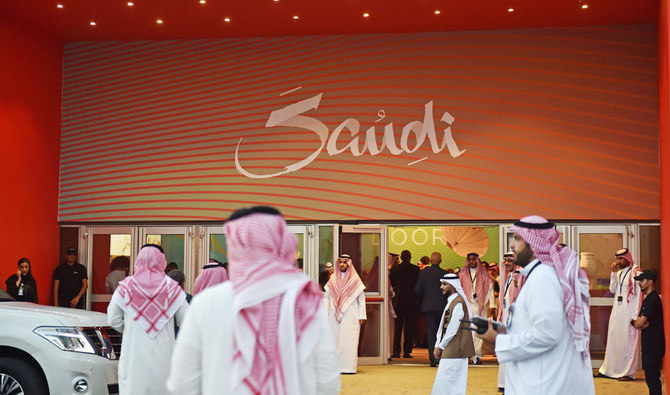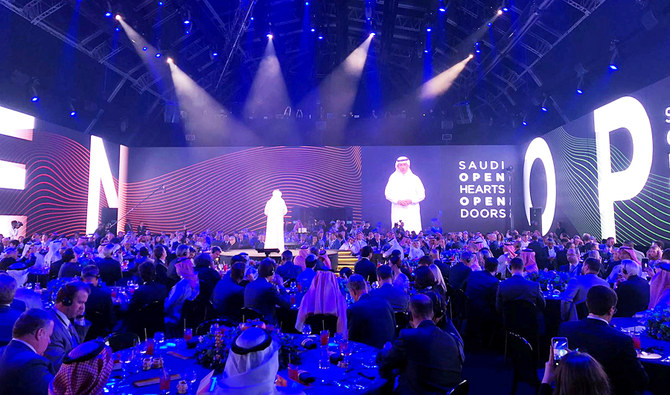AD-DIRIYAH: Saudi Arabia on Friday launched elaborate plans to attract tourists from around the world as it “seeks to attract 100 million global and domestic visits by 2030.” Addressing a large gathering in the historic Ad-Diriyah region, Ahmed Al-Khateeb, chairman of the Saudi Commission for Tourism and National Heritage, said: “We look forward to giving every guest a warm welcome and showing them the hospitality and generosity for which Arabia is famous.”
Visitors to Saudi Arabia will be surprised and delighted to discover the Kingdom’s many treasures — “the warmth of our people, our rich heritage, vibrant culture and breathtaking natural beauty,” he said. “Visitors will discover that Saudi Arabia is a land of great diversity and many contrasts,” he said.
“Saudi Arabia’s unique heritage attractions include the UNESCO World Heritage Site at Ad-Diriyah, the AlUla archaeological site and the Jeddah Historical District. The Kingdom’s variety of natural attractions range from the mountains of Abha to the beaches of the Red Sea and the shifting sands of the Empty Quarter.
“New attractions being developed include the futuristic city of NEOM, the Qiddiya Entertainment City near Riyadh and luxury destinations by the Red Sea,” Al-Khateeb said.
Visitors to Saudi Arabia will be surprised and delighted to discover the Kingdom’s many treasures — the warmth of our people, our rich heritage, vibrant culture and breathtaking natural beauty.
Ahmed Al-Khateeb, Chairman of the Saudi Commission for Tourism and National Heritage
He said that about 622,000 people were employed in tourism-related jobs in Saudi Arabia. “Over 260,000 new jobs will be created by tourism in the Kingdom over the next three years,” Al-Khateeb said. Tourism is expected to create 1 million new jobs in Saudi Arabia by 2030, pushing employment in the sector up to 1.6 million.
Al-Khateeb also announced the launch of a new tourist visa for travelers from around the world.
From Sept. 27, 2019, visitors from 49 countries will be eligible to apply for e-visas and visas on arrival, making it quick and easy to visit the Kingdom. Tourists from those countries will also be able to get tourist visas by applying through the Saudi consulates in their home countries. These one-year visas will permit tourists to stay for up to three months per visit and will allow multiple entries. Al-Khateeb said that hospitality is central to Arabian culture. “The generous and warm treatment of guests has a long history in the Arabian Peninsula and remains a foundation of Arab culture,” he said. The opening of the Kingdom to tourists was an opportunity for the Saudi people to put their hospitality on display and for people around the world to experience this generosity first hand. Guests at the gathering mingled in an open area with huge screens featuring testimonies from visitors who had previously experienced Saudi Arabia’s tourist attractions. The screens were programmed to detect people nearby, triggering the video testimonies.
HIGHLIGHTS
• The evening culminated in a performance that used the dining room’s four massive screens to showcase the extent of Saudi Arabia’s investment in the tourism sector.
• Actors strolled through the dining room in costumes as the screens displayed different areas of the country.
• One woman rode into the dining room on a live horse.
• Children with balloons made their way among the tables as the screens displayed the AlUla Hot Air Balloon Festival while one actor was carried through a basket across the room.
• There was also an actor, dressed as a diver, who swam through the air alongside a pair of dolphins as the screen showed the Red Sea behind him.
The lobby also featured areas where guests could experience the Kingdom’s various climates, including artificial snow and cold air on one side, representing Jabal Soudah, while hot, dry air simulated desert conditions.
The evening culminated in a performance that used the dining room’s four massive screens to showcase the extent of Saudi Arabia’s investment in the tourism sector.
Actors strolled through the dining room in costumes as the screens displayed different areas of the country. One woman rode into the dining room on a live horse. Children with balloons made their way among the tables as the screens displayed the AlUla Hot Air Balloon Festival while one actor was carried through a basket across the room. There was also an actor, dressed as a diver, who swam through the air alongside a pair of dolphins as the screen showed the Red Sea behind him. Discussing the details of the new visa, Al-Khateeb said Saudi Arabia had restructured its short-stay visa regime. “The new regime provides for a number of short-stay visas, including a visit visa for tourists,” he said.
Visitors from 49 countries and regions will be able to apply for the visit visa online, while other visitors will apply for visas at the Saudi embassies/consulates in their home countries.
Applications can be made online through the tourism e-portal at https://visa.sauditourism.sa/, at electronic kiosks on arrival in Saudi Arabia or at immigration counters.


































